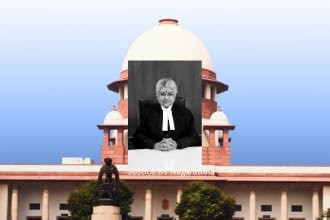In a groundbreaking development that could have far-reaching implications for global tech giants operating in India, the Uttar Pradesh State Consumer Disputes Redressal Commission recently ruled that WhatsApp can be held liable under Indian consumer laws. The Commission declared that consumer complaints against WhatsApp are maintainable, establishing a precedent that foreign digital service providers operating in India are not beyond the reach of Indian consumer protection legislation.
Background of the Case: A Disrupted Service and a Determined Complainant
The case that triggered this significant judgment was filed by Amitabh Thakur, a former Indian Police Service (IPS) officer and current President of Azad Adhikar Sena. Thakur approached the District Consumer Commission, Lucknow, with a grievance against WhatsApp. According to him, his WhatsApp services were interrupted for approximately 6 hours, affecting his work and causing inconvenience.
He alleged that this interruption violated WhatsApp’s own terms of service, and therefore, he was entitled to compensation. However, the District Commission dismissed his complaint, reasoning that:
- WhatsApp is a foreign entity, not governed by Indian consumer law.
- There was no direct monetary consideration paid by Thakur to WhatsApp, implying no consumer relationship existed.
The Turning Point: UP State Consumer Commission’s Decision
Unhappy with the dismissal, Thakur escalated the matter to the State Consumer Commission, which gave a favorable judgment, reversing the District Commission’s earlier ruling.
The bench comprising Mr. Sushil Kumar (Presiding Member) and Mrs. Sudha Upadhyay (Member) observed:
“WhatsApp provides services in India, facilitates communication between individuals, and attracts users through its services. Therefore, it qualifies as a service provider and is liable under the Consumer Protection Act, 2019.”
The commission emphasized that the origin of a company (foreign or domestic) does not exclude it from consumer law obligations, especially if it actively provides services in India.
Key Observations from the Judgment
- WhatsApp is a service provider: The Commission concluded that WhatsApp performs a service by facilitating the exchange of information, making it subject to consumer law.
- Consumer status doesn’t require monetary payment alone: The judgment implicitly challenged the notion that only paying customers are consumers, broadening the definition in light of modern digital services that monetize user data instead of direct payment.
- Jurisdiction exists within India: Just because a company is based outside India doesn’t mean it’s immune to Indian regulations if it offers services to Indian users.
Translation from the Order (Relevant Excerpt)
“WhatsApp’s core function is the exchange of personal information between individuals. It attracts customers by offering this service, thus its basic purpose is to serve and attract users. Hence, it is a service provider operating in India, and cannot be excluded from consumer complaints simply because it is a foreign company.”
Implications of the Verdict
This judgment opens the door for consumers in India to file complaints against multinational tech companies that provide services—free or paid—in the country. Here’s how this could impact the tech ecosystem:
1. Increased Accountability for Tech Giants
Companies like Google, Meta (Facebook, Instagram), Apple, Amazon, and others might now be subject to more scrutiny from Indian consumer forums. If they provide services here, they must be ready to address complaints and follow Indian regulations.
2. Evolving Definition of Consumer
This ruling underscores that even free services could fall under the ambit of “service” under consumer laws if the user suffers due to non-performance or failure to meet terms of service.
3. More Avenues for Consumer Redressal
Users who previously had no clear legal path to challenge tech companies due to lack of monetary transactions can now potentially seek remedies through consumer courts, instead of only resorting to civil suits or corporate complaint mechanisms.
Consumer Protection Act 2019: A Powerful Tool
The Consumer Protection Act, 2019 expands the definition of consumers and emphasizes service deficiency, unfair trade practices, and product liability. It empowers users to file complaints in cases of:
- Defective goods or services
- Service disruption or failure to fulfill terms
- Unfair or misleading advertisements
- Exploitation of consumer rights
This law now appears to encompass digital and tech services, not just traditional goods or paid services.
What This Means for WhatsApp and Meta
WhatsApp, owned by Meta Platforms Inc., now faces the challenge of navigating Indian regulatory frameworks more actively. Although this specific case involved a 6-hour outage, the precedent set could apply to data breaches, privacy violations, and even misinformation-related complaints in the future.
Meta has already been under the scanner for privacy violations, and this ruling further solidifies the idea that user grievances in India cannot be ignored, regardless of where the parent company is headquartered.
Conclusion: A Milestone in Digital Consumer Rights
The UP State Consumer Commission’s ruling reinforces the power of Indian consumer law in the digital age. As more citizens depend on apps and digital platforms for communication, business, education, and entertainment, accountability from service providers—whether paid or free—is non-negotiable.
This ruling is not just about WhatsApp; it’s about every digital user in India having a voice, and the right to demand fair, uninterrupted, and responsible service delivery. It’s a clear message: If you serve Indian consumers, you answer to Indian laws.


